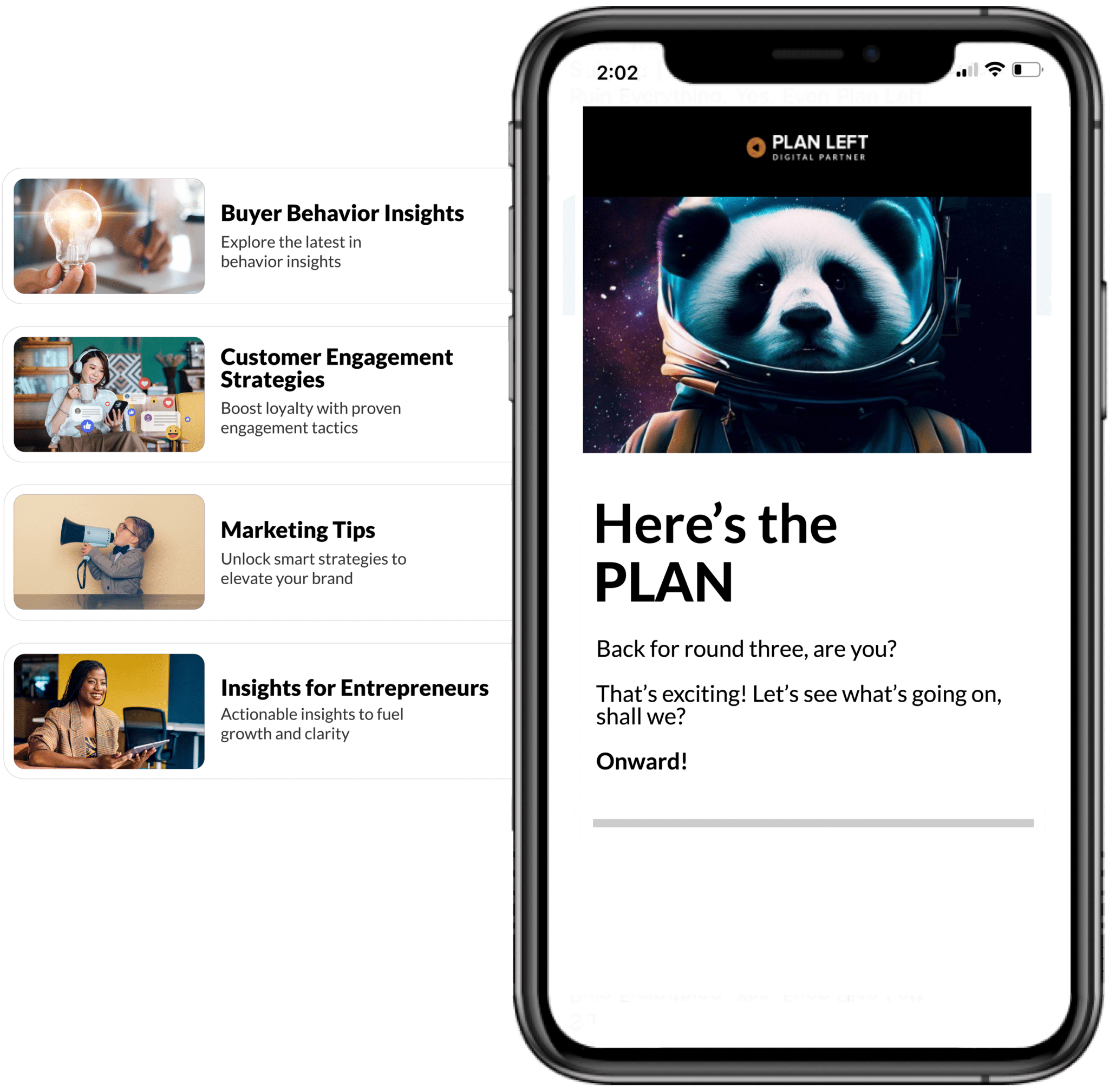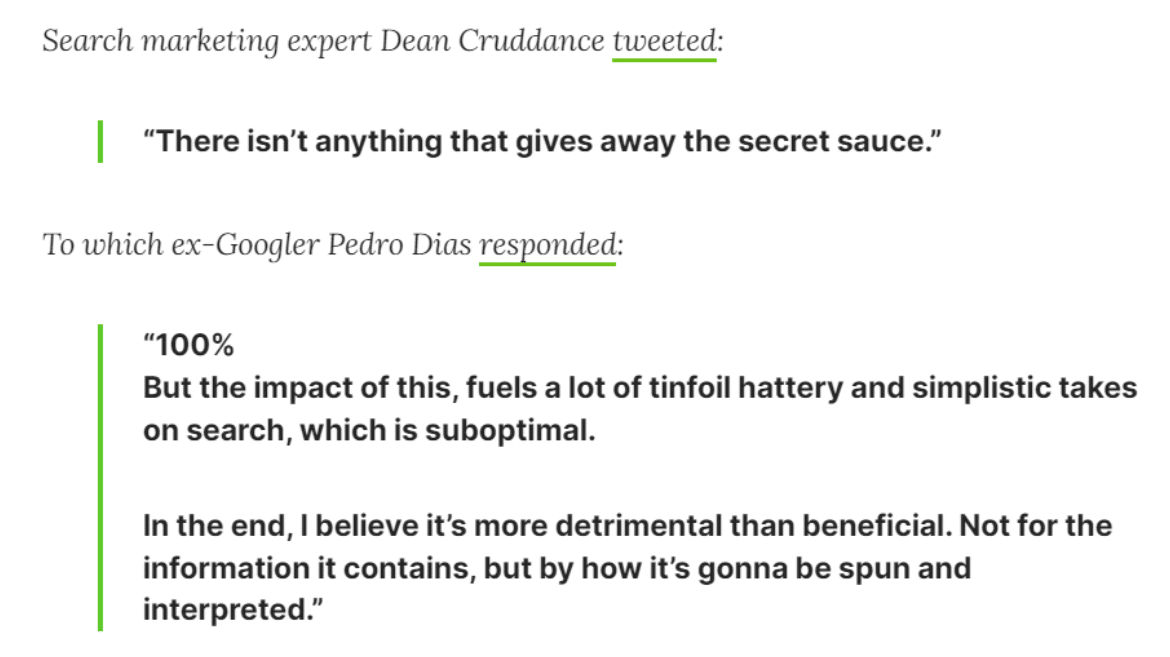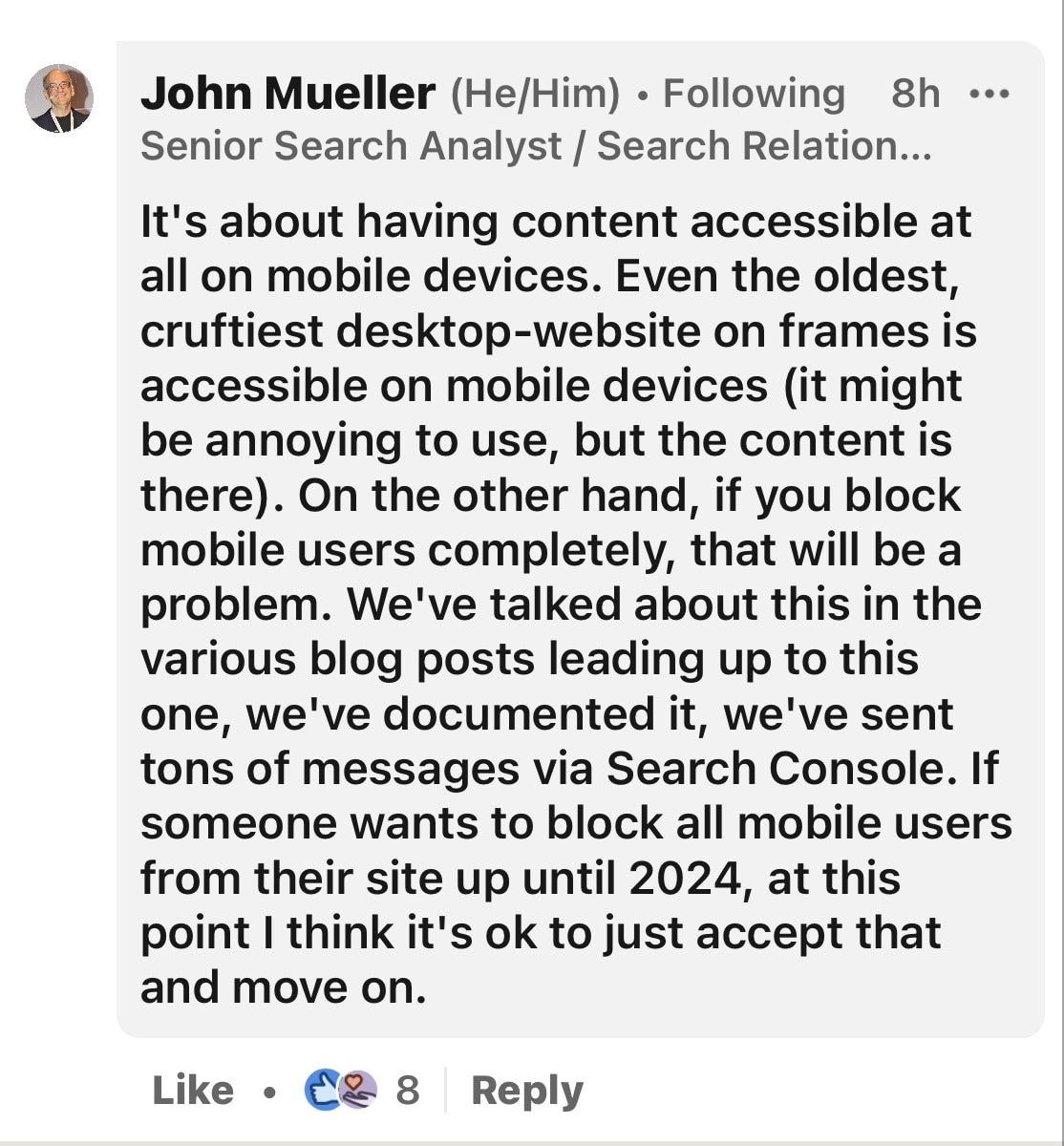
Google emailed partners last week about upcoming data privacy laws that are set to become active in July and others in 2025. Google also broke its silence on AI Overviews and the leaked documents that came into the spotlight last week. Plus, WordPress updates, Brave takes on search ads, and no more Google desktop crawlers starting in July. Get your need-to-know SEO news and updates with this week’s Coffee & SEO.
Google Offers Information on Data Responsibility with Upcoming New Laws
Google has introduced a new initiative to help advertisers, publishers, and partners comply with various US state privacy laws through its Responsible Data Practices (RDP) program. This program is designed to help all parties involved in digital advertising adhere to the latest privacy regulations, protecting user data and maintaining trust. The RDP program provides tools and resources to help businesses navigate complex legal requirements, making sure that data collection, usage, and sharing practices are transparent and compliant with state-specific laws.
States that currently have or are launching data privacy laws:
- California
- Colorado
- Virginia
- Utah
- Florida
- Indiana
- Kentucky
- Maryland
- Minnesota
- New Hampshire
- Nebraska
- Massachusetts
- Louisiana
- Montana
- Oregon
- Texas
- Connecticut
- New Jersey
- Iowa
- Tennessee
- Indiana
Google Emails Partners About New Privacy Laws and User Opt-Outs
In an email sent by Google to partners, they outlined Google’s commitment to honoring the new privacy laws and user opt-outs either already in effect or going into effect between now and 2025. The email emphasized that Google will implement mechanisms to respect user choices regarding data collection and targeted advertising. This includes users being able to opt out of data collection and making sure that these preferences are respected across all participating businesses. The email also highlighted the introduction of the Universal Opt-Out Mechanism (UOOM) by the Colorado Attorney General’s Office, which simplifies the process for consumers to exercise their privacy rights across multiple platforms.
Google Speaks Out On AI Overview Responses
Google’s AI Overview (AIO) has faced backlash due to inaccuracies and potentially dangerous recommendations. Users reported bizarre and incorrect suggestions, such as checking your blinker fluid. These AIO have led to widespread criticism and negative publicity on social media platforms.
In response to the negative feedback, Google has announced that they are taking several steps to improve the reliability of AIO. It has implemented more stringent measures for health-related queries, disabled misleading advice, and limited the inclusion of satirical and user-generated content from forums like Reddit. Additionally, Google has introduced better detection mechanisms for nonsensical queries and is working on technical improvements to reduce the likelihood of generating incorrect answers.
Google’s head of search, Liz Reid, who wrote the blog post announcement, acknowledged the problems and assured users that Google is committed to improving AIO. The updates aim to strengthen safeguards and improve the overall quality of search results, making sure that the AI-generated summaries are more accurate and reliable.
WordPress Releases New Playground Tool
The new WordPress Playground is designed to help developers create, test, and demonstrate WordPress sites and plugins in a sandbox environment directly within their web browsers. This tool allows developers to clone their existing WordPress sites, including all files and databases, into a private instance that runs locally on their device.
This means that no data is uploaded to any cloud service, and the site’s data remains secure and private.
Some highlights of the new tool are:
- Sandbox Environment – Developers can create a sandbox copy of their site by accessing the WordPress admin panel and selecting the “Sandbox Site” option under the Tools menu. This sandbox environment allows for safe experimentation without affecting the live site.
- Plugin Testing – The Playground enables developers to test plugins from the WordPress plugin directory without installing them on the live site. By clicking the “Preview Now” button in the Plugins menu, the selected plugin is installed and activated in the sandbox environment, allowing for thorough testing and troubleshooting.
- Interactive Demos – The Playground supports interactive demos, making it an effective tool for showcasing themes and plugins. Developers can use the JavaScript API to create standalone instances that demonstrate how a custom plugin works with a specific theme. This is particularly useful for preparing WordPress guides and tutorials that go beyond textual documentation to provide a hands-on experience.
- Export and Share – Developers can export snapshots of their Playground instances, which can be shared with others for collaborative development or demonstration purposes. This feature is accessible through the Tools > Export menu.
- Developer-Oriented Tools – The Playground includes a JavaScript API that allows developers to initiate the Playground API Client, load instances within an iFrame, and customize the environment according to their project’s needs. This modularity supports the sharing of themes, plugins, and complete websites, enhancing the interactivity and engagement of WordPress projects.
WordPress Windows App to Create Sites on Desktop
WordPress has also recently expanded its local development platform, WordPress Studio, to include a Windows desktop app following its initial release for Apple Mac devices. This move is set to include over 25% of WordPress developers who use Windows and non-developers who want to learn WordPress without risking their live websites.
Some highlights of the new app are:
- Local Development
- Convenience – The app allows users to work on websites from their desktops, making it easier and safer than working directly on a live site. This is particularly beneficial for testing new plugins or creating demo sites without the need for an online testing site.
- Cost-effective and Faster – Local development is ideal for testing and development, reducing the need for costly online testing environments and speeding up the development process.
- User-Friendly Interface
- Simplified Access – The app provides one-click admin access to the WordPress Admin for each site, simplifying the management process.
- Flexible Development – Users can open site code in any preferred Integrated Development Environment (IDE), Command Line Interface (CLI), or file browser, offering flexibility in development workflows.
- Advanced Functionalities
- Demo Sites – Users can create and share interactive snapshots of local sites with clients or colleagues via WordPress.com, eliminating the need for complex tunneling solutions like Ngrok. These demo sites are hosted for free on a temporary domain (WP.build) and last for 7 days after the last update.
- Theme Export – The app allows users to export themes created in the local environment as zip files, which can then be uploaded to live or staging sites, facilitating easy deployment.
- Ease of Use
- Superfast Installation – The app supports the creation of unlimited local sites regardless of the number of projects, making it highly efficient for developers working on multiple projects.
- Dependency-free Building – WordPress Studio builds lightweight and reliable sites without the need for dependencies like Docker, NGINX, Apache, or MySQL, simplifying the setup process.
Google Document Leak Authenticity Questioned
Last week, we mentioned the Google leaked documents and the inferences being made regarding the ‘secret ranking factors’ assumed to be within them. As we also mentioned, there seemed to be more to the story than we originally believed.
Source: https://www.searchenginejournal.com/alleged-google-data-leak/517758/
First, the documents were originally ‘leaked’ around the end of March, but Rand Fishkin wasn’t informed until the beginning of May, and they were not unleashed on social media through Fishkin’s social accounts until the end of May.
It’s uncertain who released the API documents, but we do know that no ‘secret ranking factors’ have been discovered within them. Everything that has been reviewed only confirms what we’ve known or assumed from data analysis and metric reporting, like dwell time, for example.
Ex-Googlers have chimed in as well also to reiterate that the content within the documents are not secret ranking details and to be mindful of how these ‘leaked documents’ will be interpreted.
Source: https://www.searchenginejournal.com/alleged-google-data-leak/517758/
The bottom line is to take everything you read with a grain of salt, and before you take even the most seasoned SEO’s word on something, fact-check, and research things for yourself.
Watercooler Highlights
If your website hasn’t been mobile responsive, Google has crawled it with the desktop crawler, but that will stop starting next month. And if you’ve been looking for a new place for ads, Brave now offers search ads that they claim convert just as well as Google search ads.
Google Mobile Indexing To Become Googlebot Smartphone Crawler After July 5th
After July 5th, all websites will be crawled with the Googlebot Smartphone crawler. This means that the small number of websites still being crawled by the desktop crawler will no longer be crawled and, if indexed, shown on mobile devices, even if they are not mobile-friendly.
Source: LinkedIn Reply
Brave Adds Search Ads
Brave now offers search ads, claiming that the new search engine ads are as effective as those of Google.
Brave has stood out for its strong commitment to privacy, independence from Big Tech, and innovative features like Goggles and community-driven search rankings. It offers an alternative for users looking for a private and customizable search experience.
Explore Latest Posts
The Hidden Costs of Managing Your Own Google Ads: What Most Business Owners Miss Google Ads seems straightforward enough: pick ... read more
February 11, 2026
Building a Marketing Strategy That Doesn't Require the CEO's Daily Involvement You built your business through hustle, and marketing was ... read more
February 4, 2026
How to Evaluate a Marketing Agency When You've Been Burned Before Getting burned by a marketing agency leaves more than ... read more
January 28, 2026
Essential Strategies for Entrepreneurs
Get Actionable Business Insights & Marketing Tips
Our newsletter delivers real-world strategies from entrepreneurs who’ve been exactly where you are.
Sign up now for:
- Actionable growth strategies that work
- Insider tactics for attracting top talent
- Real-world case studies from successful founders
- Emerging tech trends that drive innovation
- Pragmatic marketing approaches for visionary leaders








